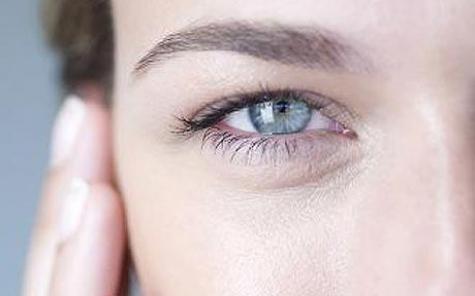What happens when your eyesight starts to ‘go’? It can affect people at any age, and affects the majority of Australians.
For many, it starts with not being able to read a menu at a restaurant in our 40s and, by the time, most Australians reach 65, two-thirds are likely to have some form of vision impairment.
Some vision loss can be prevented, some is hereditary and other conditions develop as we age. Because women are living longer than men, most people suffering vision loss due to age-related conditions are women, as they are more at risk of vision diseases such as macular degeneration which affects central vision.
There are several other eye issues that affect girls and women more than boys and men: dry eye syndrome and eye infections.
Dry eye syndrome is caused by changes in hormones during a woman's life, which affects the tear gland and eye surface more drastically. If gone untreated, this can lead to severe damage to the cornea. Additionally, women are more likely to wear make-up which is associated with eye infections, as well as use common acne medication.
For eyesight problems which are preventable, health experts recommend regular eye examination and healthy lifestyle.
“Some vision risk factors include smoking, cholesterol, poor diet, lack of exercise and obesity,” says Sharon Brookman, an optometrist in Adelaide.
"Smoking is linked to the development of macular degeneration and even second hand smoke can affect the eyes," Ms Brookman said.
Studies have shown that good nutrition also supports healthy eyes. Eating a variety of healthy foods that include Omega-3 oils (found in some fish) along with an intake balance of flax seed and walnuts, all contribute to maintaining healthy vision. There are also multivitamins and specific supplements that aid in overall good eyesight and reducing the progression of disease.
"Your diet is not the only contributing factor to having and keeping healthy vision," Ms Brookman said. “Physical activity helps overall health and can reduce the chance of developing diseases like diabetes and high blood pressure, which can definitely affect the eyes."
Ms Brookman says annual or biannual eye examinations are recommended because it decreases the risks for vision problems.
"If there are any issues, they are more treatable when detected at an early stage."
* * *
Make an eye appointment with an optometrist through 1stAvailable.



















__small.png)










